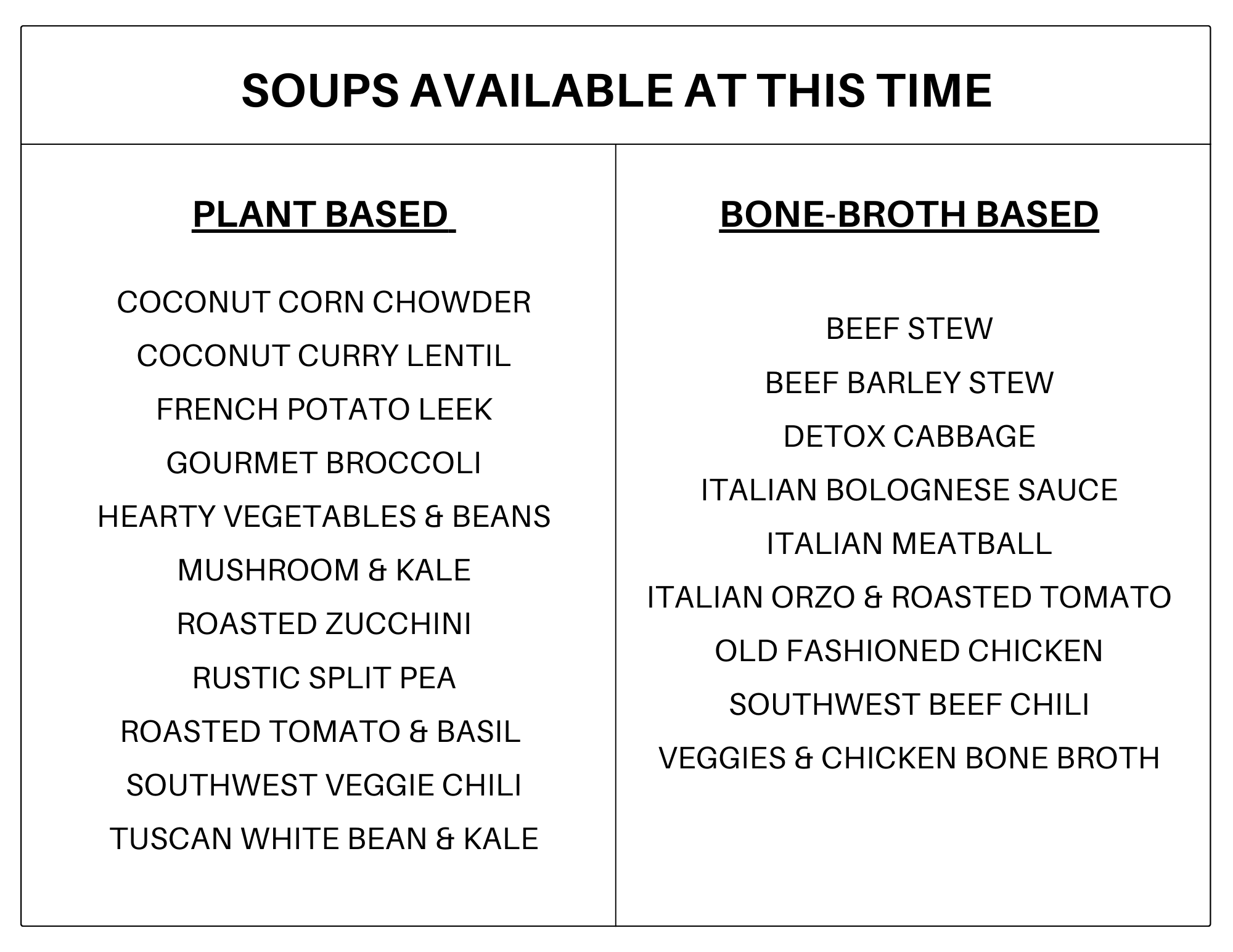Why Soup?

At Organic Soup Kitchen, we thoughtfully craft each of our recipes to be nutritious, flavorful, and made with the highest quality organic ingredients from local farms. The soups that are made and packed by Organic Soup Kitchen are formulated to support the body’s natural defense mechanisms against infection and chronic disease.
Why Soup?
Organic Soup Kitchen was driven by the desire to provide accessible, nutritious meals to low-income seniors and those with chronic disease. To serve these populations, we chose to focus on soups because we believe that when the soup is made right, it provides a full, nourishing meal.
Our soups are packed with vitamins, minerals, and fiber from the organic vegetables that we hand-source from local farms. Our plant-based soups are coconut milk-based, which is a source of healthy dietary fat through their high content of medium-chain triglycerides that provide a concentrated source of energy. Organic Soup Kitchen’s meat-based soups use a homemade bone broth that is rich with collagen and immune-supporting amino acids. All herbs and spices used to flavor the soups are organic and non-irradiated to preserve their nutritional value.
To cater to clients who are seniors or have chronic disease, many of our soups are pureed to aid digestion. Most of our soups additionally have low sodium and low cholesterol profiles to support chronic disease management.
Benefits of Soup Consumption
Soups are very effective at reducing feelings of hunger after eating by delaying the emptying process of the stomach while increasing the body’s glycemic response. As a result, studies have shown that regular soup consumption can be protective against obesity or overweight. Regulating increased body weight is an important step in managing additional chronic disease, given that obesity is a common risk factor for many other diseases, such as type 2 diabetes and hypertension.
In addition, soup can enhance dietary quality by increasing vegetable, legume, and whole grain intake in a concentrated way. The vegetables, legumes, and whole grains used in soups can provide high amounts of fiber, vitamins, and minerals that are used by the body to fight infection, regulate inflammation, and defend against free radicals. The cooking and storage methods used by Organic Soup Kitchen minimize the amount of nutrient loss to ensure a nourishing product.
Organic Soup Kitchen’s collection of handcrafted soups provides easy-to-eat, accessible, and nutrient–packed meals for low-income seniors, clients with chronic disease, and anyone who is looking to support their bodies with high-quality, wholesome foods.
References
Is Soup Healthy? Ingredients, Benefits, and Different Types. https://www.healthline.com/nutrition/is-soup-healthy#what-makes-soup-healthy
Zhu Y, Hollis JH. Soup Consumption Is Associated with a Reduced Risk of Overweight and Obesity but Not Metabolic Syndrome in US Adults: NHANES 2003–2006. PLoS One. 2013;8(9):e75630. doi:10.1371/journal.pone.0075630


